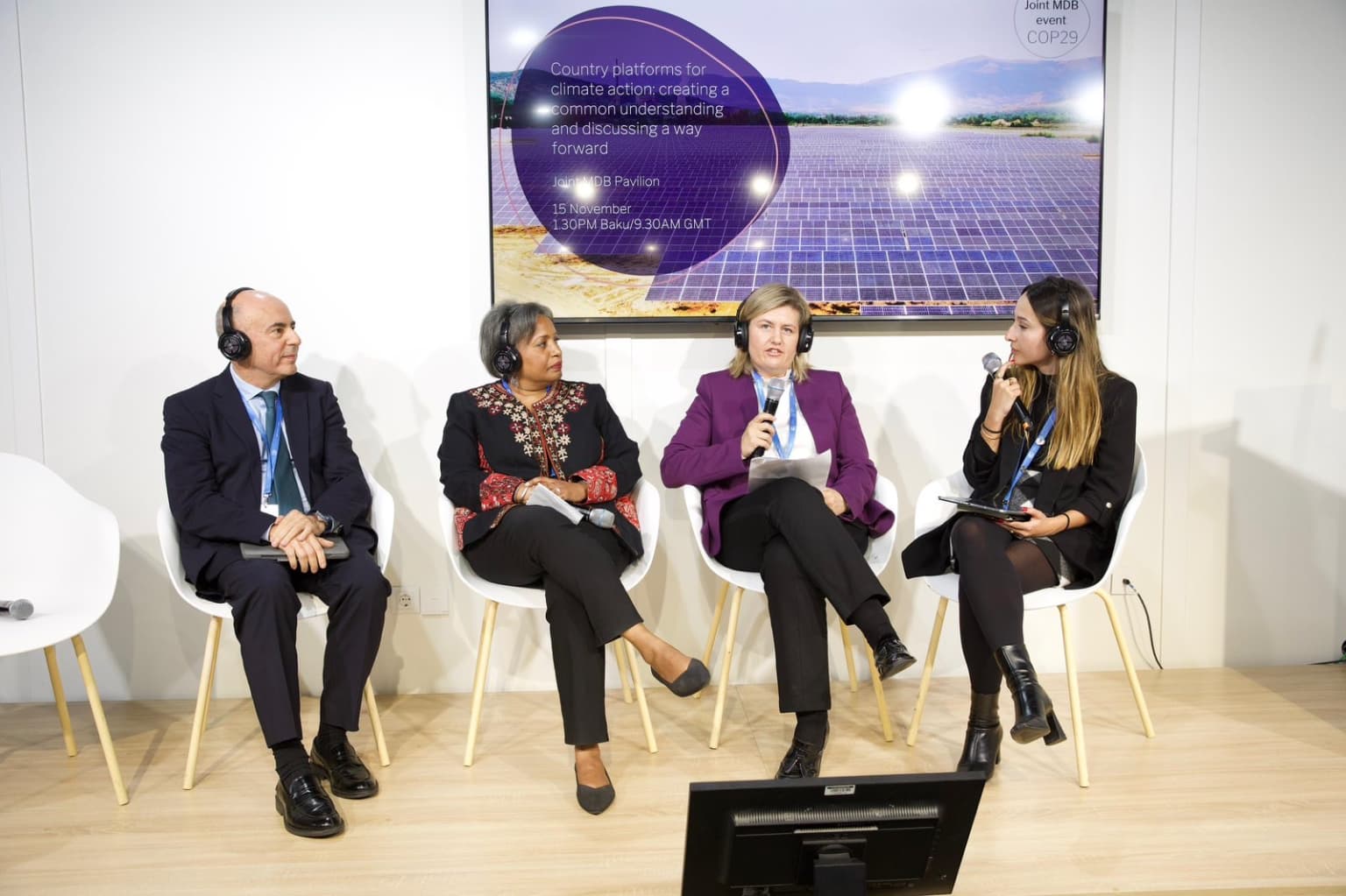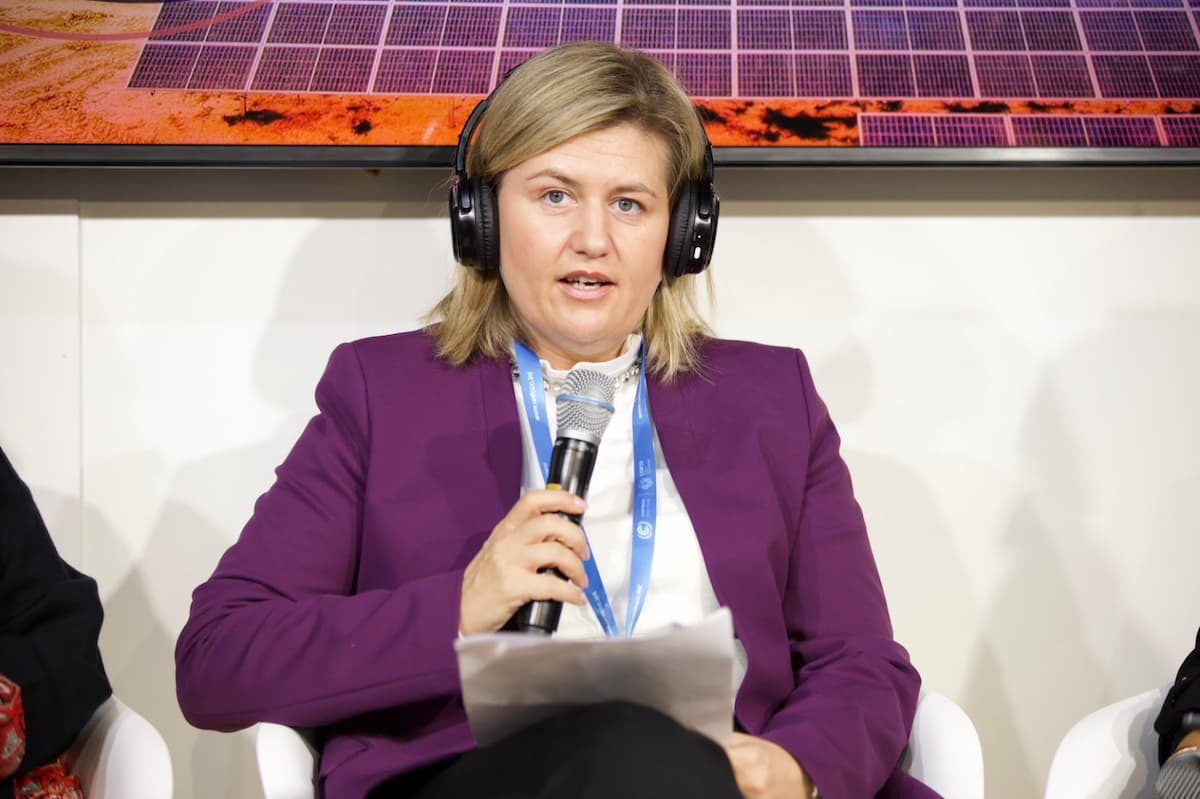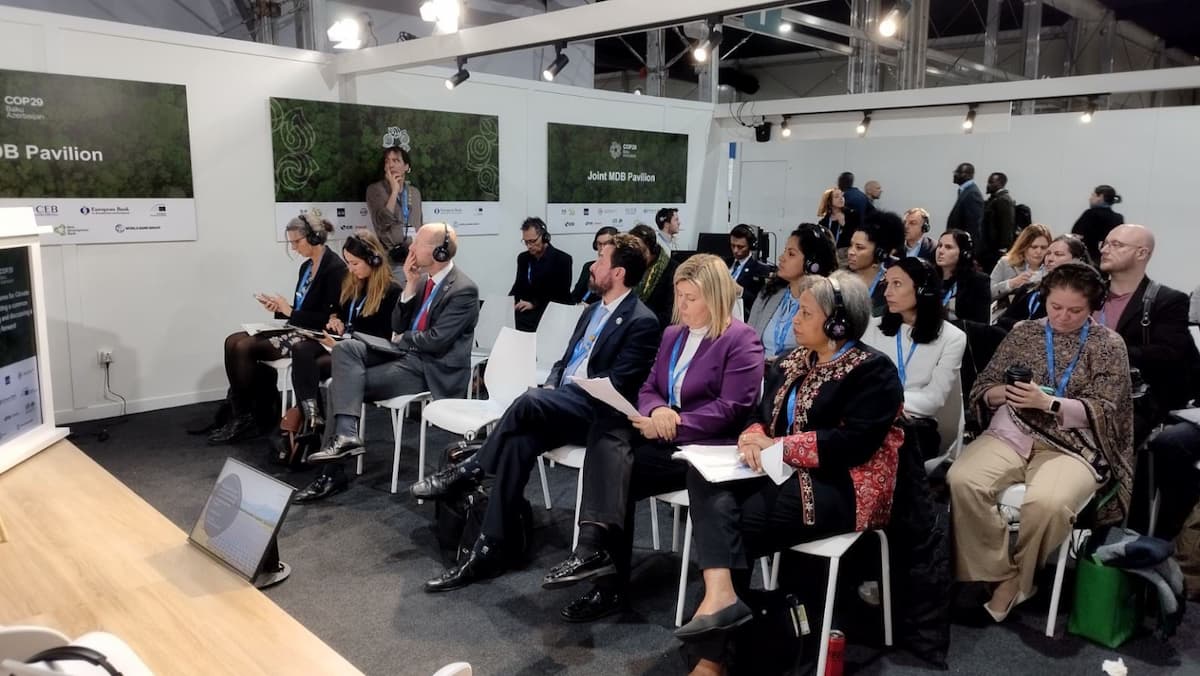The Minister of Energy, Mining, and Mineral Resources, Sanja Bozhinovska, participated in a panel discussion at the "Joint MDB (Multilateral Development Banks) Pavilion" at COP29 in Baku, focused on the importance of platforms for climate action and the mobilization of finance for the energy transition.
In her address, the Minister emphasized North Macedonia's commitment to a just energy transition through JETIP (Just Energy Transition Platform), which serves as the foundation for phasing out coal and increasing renewable energy sources.
"The ambition is clear: the development of an additional 1 GW of renewable energy capacity as part of the accelerated transition to green energy. This initiative will not only reduce greenhouse gas emissions but will also open new opportunities for local communities and position North Macedonia as a leader in the region," stated Minister Bozhinovska.
In her speech, the Minister highlighted key achievements within JETIP, including:
-
Strengthening the energy network through technical assistance and investments, supported by the European Bank for Reconstruction and Development (EBRD).
-
Preparation for the implementation of a Contract for Difference (CfD) mechanism, which will stimulate private sector participation in renewable energy sources.
The Minister emphasized that successful realization of these ambitions requires coordination and support from international partners.
"Just transition requires significant financial investments. North Macedonia needs substantial financial support to meet these requirements without jeopardizing economic stability. In this context, the commitment of the international community is crucial. We call on our partners to continue providing financial aid, grants, and concessional financing, which are necessary to ensure a just and sustainable transition. We express our gratitude for the support and commitment the international community has provided so far. A key challenge is ensuring that this transition is just and inclusive, particularly for communities that traditionally depend on mining and coal-fired power plants. North Macedonia’s approach is focused on supporting affected workers and communities, providing new, sustainable opportunities and maintaining social stability," emphasized Bozhinovska.
The success of JETIP depends on coordinated support from international and regional partners, including financial institutions, technical advisors, and policymakers. The road is ambitious, and challenges are inevitable, said Bozhinovska, adding that the progress made so far confirms North Macedonia's commitment to achieving a greener and fairer energy future.
"Through joint efforts from the government, the private sector, and international partners, I am confident that North Macedonia can meet its goals and become an example of energy transition in the region," said Bozhinovska in her address.
The "Joint MDB Pavilion" event focused on how climate action platforms can provide national coordination and international support for implementing national contributions (NDCs) in the 2025-2035 period. The panel discussed experiences from different countries, as well as the role of international financial institutions and the private sector in providing finance for climate action.




